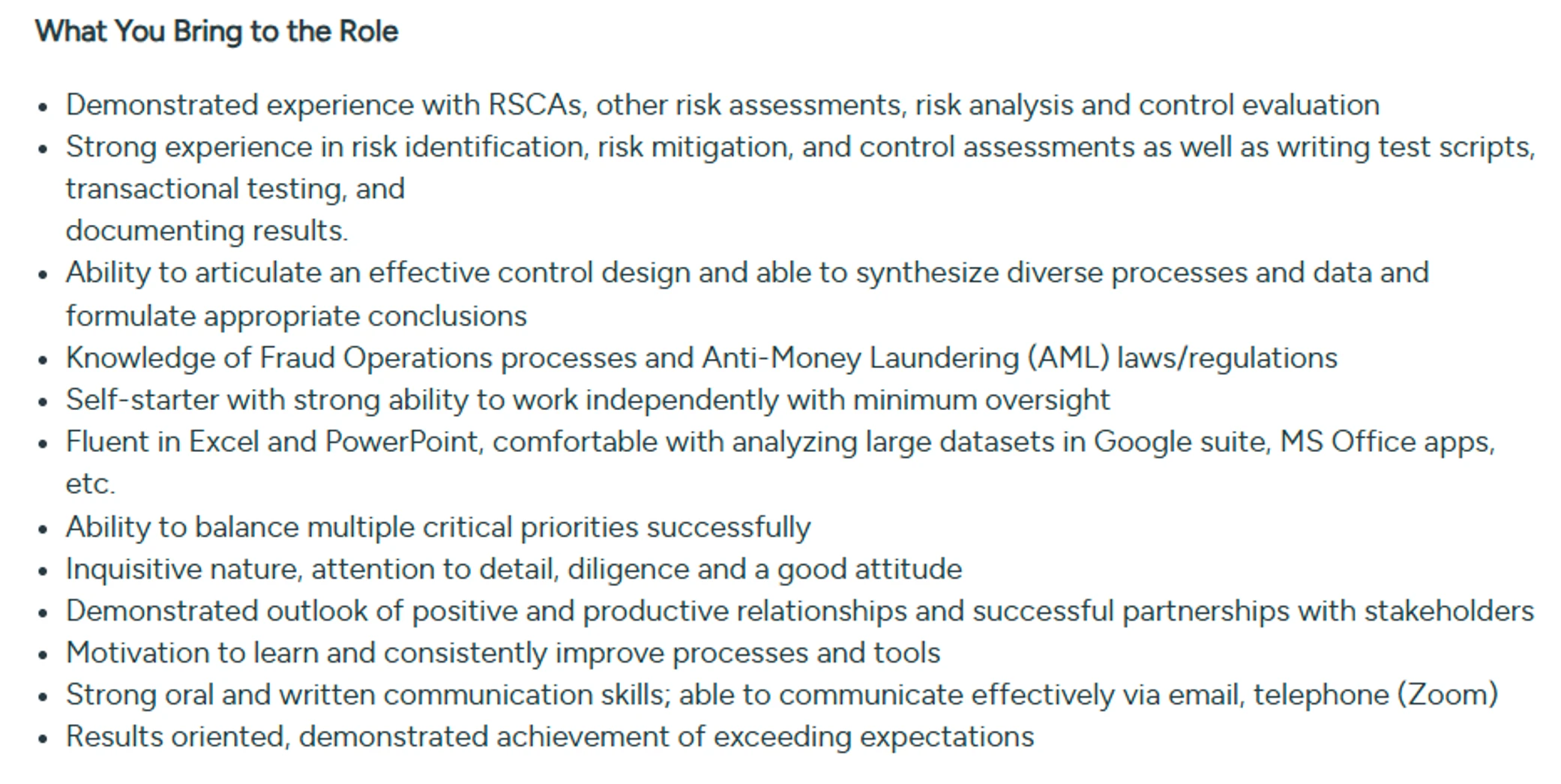Fraud Analyst Interview Questions: Best Answers & Tips Included

03/03/2025
Key Takeaways
- Fraud analysts protect businesses by identifying suspicious transactions and patterns using data analysis and detection tools.
- In interviews, expect questions about your analytical methods, experience with fraud cases, and how you'd handle specific fraud scenarios.
- Technical questions will test your knowledge of detection systems, data analysis, and ability to explain complex findings.
- Prepare stories about past fraud detection successes, familiarity with latest fraud trends, and examples of your analytical process.
- TTEC offers exciting career opportunities for fraud analysts with competitive pay and global positions across multiple locations.
Understanding the Role
Financial Superhero
Fraud analysts are the guardians who keep companies safe from sneaky scammers trying to steal money, wielding data, analytics, and sharp thinking as their weapons in this real-world financial crime-fighting role.
As a financial guardian, you’re the first line of defense against economic threats. You're catching bad guys before they can even pull off their scheme. Your job goes beyond finding fraud - you protect businesses, keep customers safe, and ensure everyone plays by the rules.
Job Evolution
Fraud analysis has transformed dramatically. What once required manual review of transaction logs is now powered by AI and machine learning that instantly spot suspicious patterns. Today's fraud analysts blend computer science, psychology, and statistics with detective work.
The constant evolution of threats and technologies makes this career path dynamic and continuously challenging.

Join TTEC: A Global Leader in Customer & Employee Experience
TTEC, a customer experience innovator, operates across 6 continents in countries such as Greece, Poland, and India, and employs over 55,000 individuals fluent in 50 languages. Our commitment to excellence is evident in our award-winning culture, highlighted by our 2024 accolades like Top 10 Operations Teams, Silver Certification in MLT’s Black Equity Program, and recognition as one of the UK’s Best Workplaces.
With an employee satisfaction rating of 4.1 out of 5 on JobStreet, we pride ourselves on creating supportive and flexible work environments that enhance both employee and customer experiences. Find a variety of client-facing and business support roles within a company that values community connections.
Find Your TTEC SparkFraud Analyst Interview Questions & How to Answer Them
Question Types
Prepare for three primary interview question categories:
- Experience-based questions exploring your professional background
- Technical skill assessments of your analytical capabilities
- Scenario-based challenges testing your problem-solving approach
Experience-Based Questions
Key Questions to Prepare For
1. Tell me about a time you detected potential fraud.Example Answer: "At my previous company, I identified a card testing scheme by analyzing unusual small transactions across multiple accounts. I developed a detailed report, collaborated with the security team to block suspicious accounts, and implemented verification steps that reduced similar fraudulent attempts by 40%."
2. How do you stay updated on fraud techniques?Example Answer: "I actively participate in professional networks, attend cybersecurity conferences, and complete monthly online training modules to understand emerging fraud trends and detection technologies."
3. Describe a situation where you had to explain complex fraud findings to non-technical stakeholders.Example Answer: "When presenting quarterly fraud metrics to executives, I created visual dashboards that translated technical data into business impact stories. I highlighted how our team's detection methods prevented potential losses of $2.3 million and improved customer trust by reducing false positives by 15%."
Technical Assessment
Technical Skill Demonstration

Example Answer: "I rely on a comprehensive approach that combines statistical analysis, pattern recognition, and cross-referencing multiple data sources. This includes identifying unusual transaction volumes, unexpected geographic patterns, and deviations from typical customer behavior."
2. How do you use data visualization tools in your fraud analysis work?Example Answer: "I leverage tools like Tableau and Power BI to create multi-dimensional visualizations that reveal hidden patterns in transaction data. For example, I developed a geographic heat map that identified a cluster of fraudulent activities in previously overlooked regions, allowing us to implement targeted prevention measures."
3. What experience do you have with machine learning models for fraud detection?Example Answer: "I've implemented supervised learning models that analyze historical fraud cases to identify key indicators. I recently fine-tuned an algorithm that reduced false positives by 22% while maintaining a 96% detection rate by incorporating behavioral biometrics alongside traditional transaction data."
Scenario Response Strategies
Example Scenario Questions
1. What would you do if potential fraud involving a senior executive came to your attention?Example Answer: "I would document evidence meticulously, follow company reporting protocols, and engage with the compliance department while maintaining strict confidentiality."
2. How would you handle conflicting fraud detection signals?Example Answer: "I would:
- Gather additional context
- Cross-reference data sources
- Consult team members
- Develop a comprehensive risk assessment
- Recommend a balanced response"
Example Answer: "I would immediately document all instances and patterns, conduct rapid analysis to identify common characteristics, and implement temporary safeguards. Then I'd collaborate with industry peers to gather intelligence, develop a comprehensive detection strategy, and create training materials to educate our team on the new threat vectors."
Tips to Ace a Fraud Analyst Job Interview
Before the Interview
Do Your Homework
Take some time to check out what kind of fraud headaches the company deals with. Is it a bank fighting off account hijackers? An online shop drowning in fake chargebacks? Knowing their specific pain points shows you're already thinking like one of the team.
Get Your Fraud War Stories Ready
Have a few real examples up your sleeve that show how you've:
- Spotted weird patterns everyone else missed
- Fixed a problem that cut down on fraud
- Teamed up with other departments to squash a threat
- Quickly adapted when the bad guys changed tactics
Throw in some real numbers whenever you can—cut fraud by what percentage? Saved how much cash? Numbers really pack a punch.
During the Interview
Show How Your Brain Works
When they hit you with technical questions, walk them through your thinking step-by-step. Fraud analysis isn't just about nailing the right answer; it's about showing how you connect the dots and follow the trail.
Link Tech Skills to Real Business Wins
Don't just brag about being a SQL wizard or machine learning guru. Tell them how you used these skills to protect the company, make customers happier, or save serious money. Like: "The SQL query I built caught a pattern that saved the company $50,000 in potential losses."
Ask Questions That Make Them Think
Wrap up by throwing out questions that show you know your stuff:
- "What fraud trends are keeping you up at night right now?"
- "How do you make sure you're stopping fraud without driving customers crazy?"
- "What tools do you guys use for watching transactions in real-time versus digging deeper later?"
After the Interview
Smart Follow-Up
Send a quick thank-you that mentions specific stuff you talked about and maybe drops in a thought about a fraud trend that matters to their business. This shows you're still thinking about fighting fraud even after you've left the building.
Remember: The best fraud fighters mix tech smarts with people skills and business know-how. Make sure your interview shows all three sides of you to really blow them away.
TTEC: Your Gateway to a Fraud Analysis Career

What We're Looking For
We want analytical superstars who are passionate about identifying frauds and solving complex puzzles. If you love diving into data, identifying risks, and have a knack for fraud prevention, TTEC wants you. We're seeking candidates with strong skills in risk analysis, knowledge of Anti-Money Laundering regulations, and the ability to communicate complex findings effectively.
What You'll Do
Your days will be filled with exciting challenges: developing fraud prevention strategies, creating process maps, designing test scripts, and providing critical insights that protect our business. You'll work closely with our fraud operations team, using your analytical skills to identify and mitigate potential risks.
Why Choose TTEC
We offer more than just a job - we provide solid career advancement opportunities. Expect competitive compensation, performance bonuses, and a supportive environment that values your growth. As a global company committed to diversity and innovation, we're looking for team members who can bring their unique perspective to our fraud prevention efforts.
Your next career adventure is just one click away. Apply today at TTEC and let's protect businesses together!
Frequently Asked Questions (FAQ)
What exactly does a Fraud Analyst do?
Think of it like being a financial detective who uses data, tech skills, and some seriously sharp thinking to catch bad guys trying to steal money or data from companies.
Do I need a specific degree to become a Fraud Analyst?
While a background in finance or computer science helps, what matters most is your passion for solving puzzles, your analytical skills, and your ability to spot weird patterns that others miss.
How technical do I need to be to succeed in this role?
You'll need to be comfortable with tools like Excel and SQL, but don't worry - it's more about understanding how to use technology to tell a story and solve financial mysteries.
What's the most challenging part of being a Fraud Analyst?
Staying ahead of constantly changing fraud techniques is like a never-ending game of cat and mouse - which is exactly what makes the job so exciting and never boring.
Why should I consider a Fraud Analyst career with TTEC?
At TTEC, you're not just getting a job - you're joining a global team of innovation champions who are passionate about protecting businesses, offering competitive compensation, amazing growth opportunities, and a chance to be a real financial superhero.
Join us and thrive
Your next opportunity starts here. Whether you're actively searching or simply exploring what’s next. our Talent Community connects you with opportunities that align with your goals.
